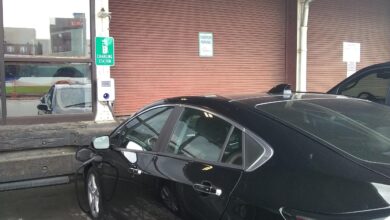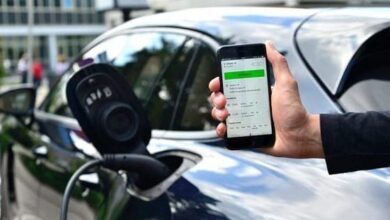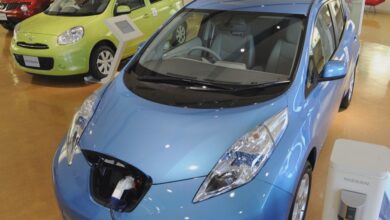Where Will Lucid Stock Be in 3 Years?

Lucid (LCID 0.18%) went public by merging with a special purpose acquisition company (SPAC) nearly three years ago. The luxury electric vehicle maker initially gained a lot of attention because it was led by Peter Rawlinson, Tesla‘s (TSLA 0.66%) former chief vehicle engineer who oversaw its development of the Model S, and was on track to deliver its first vehicles by the end of 2021.
Lucid’s stock opened at $25.24 on its first day, more than doubled to its all-time high of $55.52 four months later, but now trades at less than $3 a share. Let’s see why Lucid’s stock crashed — and if it can bounce back over the next three years.
Image source: Lucid.
What happened to Lucid over the past three years?
Lucid currently sells several versions of its Air sedan. But like many other SPAC-backed EV makers, it set some ambitious delivery and revenue targets in a pre-merger presentation — then broadly missed its own expectations.
| Metric | 2022 | 2023 |
|---|---|---|
| Estimated deliveries | 20,000 | 49,000 |
| Actual deliveries | 4,369 | 6,001 |
| Estimated revenue | $2.22 billion | $5.53 billion |
| Actual revenue | $608 million | $595 million |
Data source: Lucid.
Lucid blamed those sluggish delivery rates on its supply chain constraints, macro headwinds, and the delayed launch of its Gravity SUV — which was pushed back from 2023 to late 2024. However, Lucid also repeatedly cut its prices over the past year, which suggests it’s struggling to stand out in the crowded EV market.
Lucid only expects to deliver approximately 9,000 vehicles in 2024, compared to its pre-merger target of 90,000 vehicles. Analysts expect it to only generate $896 million in revenue this year, compared to its original forecast of $9.93 billion.
What will happen to Lucid over the next three years?
In 2022, Rawlinson claimed Lucid could produce more than 500,000 vehicles in 2025. However, it only expects to expand the annual production capacity of its Arizona plant to 90,000 vehicles by the end of 2024, while its new Saudi Arabian plant — which only produces 5,000 vehicles annually — might produce 155,000 vehicles per year by the “middle of the decade.” So even in a best-case scenario where Lucid’s plants operate at full capacity, it would only pump out 245,000 vehicles in 2025.
Lucid hasn’t reiterated that lofty target of half a million vehicles lately, and analysts don’t expect it to come anywhere close to that goal. However, they still expect Lucid’s revenue to reach $4.51 billion in 2026 — which would represent an impressive compound annual growth rate (CAGR) of 96% from 2023.
We should take those estimates with a grain of salt, but Lucid expects the launch of the Gravity SUV and the support of the Saudi Arabian government — which owns more than 60% of its shares through its Public Investment Fund (PIF) — to drive that growth. In addition to funding its new Saudi Arabian plant, the Saudi government has agreed to buy 100,000 of Lucid’s vehicles over the next decade. If Lucid can match analysts’ expectations, then its stock still looks cheap at 2 times its 2026 sales. By comparison, Tesla trades at 4 times its estimated sales for 2026.
Lucid expects its $4.78 billion in liquidity at the end of 2023 to last through “at least” 2025 as it ramps up its production of the Gravity SUV, but analysts expect it to continue burning cash at an alarming rate: it’s expected to generate negative annual free cash flows (FCF) of $3.51 billion in 2024, $2.65 billion in 2025, and $2.23 billion in 2026.
Lucid’s debt-to-equity ratio of 0.8 gives it some room to raise fresh cash, but its business model doesn’t seem sustainable yet. And like many other unprofitable EV makers, its stock will likely remain out of favor as long as interest rates stay elevated.
So where will Lucid’s stock be in three years?
Lucid isn’t down for the count yet. Still, its habit of overpromising and underdelivering, ongoing price cuts, and lack of competitive advantages against Tesla and other EV makers all suggest it will continue to disappoint its investors.
Therefore, I believe Lucid’s stock will either stagnate or slide lower over the next three years unless it gets its act together. For now, investors would be better off investing in other EV makers like Rivian (RIVN 2.44%) or Nio (NIO -0.36%) — which are both producing more vehicles than Lucid — as deep value plays in the EV market.
Leo Sun has no position in any of the stocks mentioned. The Motley Fool has positions in and recommends Nio and Tesla. The Motley Fool has a disclosure policy.



